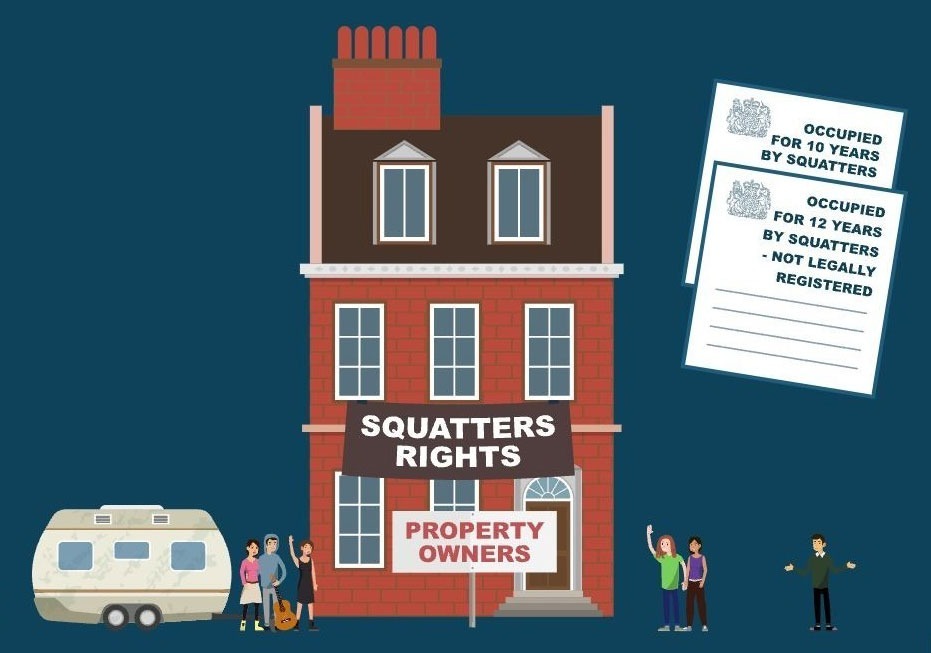17 April, 2025
2025 Update: Spain’s New Law on Evicting Illegal Occupants
How Spain’s Latest Legislation Affects Property Owners and Squatters
Spain has enacted a major legal reform aimed at combating illegal property occupation. Known as the Anti-Okupa Law 2025, the legislation came into effect on April 3, 2025, and introduces a series of measures that allow property owners to reclaim their homes more swiftly.
The law specifically targets the long-standing problem of okupas (illegal occupants), a challenge thathas affected thousands of homeowners across Spain (Martínez, 2025).
Key Changes Under the New Law
1. Fast-Track Evictions:
The core feature of the new legislation is the streamlined eviction process, which dramaticallyreduces the time it takes to reclaim illegally occupied properties. Before this law, it could take up to two years to remove squatters. Now, cases of property usurpation (usurpación de vivienda) can be resolved in as little as 15 days (ThinkSpain, 2025).
2. 15-Day Eviction Timeline:
Once a court confirms that an occupation is illegal, squatters must vacate the premises within 15 days. This represents a stark shift from the drawn-out legal battles of the past and offers homeowners much faster relief (GBA Abogados, 2025).
3. Illegal Occupation is Now a Criminal Offense:
Importantly, the law now makes any illegal occupation a criminal offense, regardless of whether the property in question is a primary residence or a holiday home (SPI News, 2025) This clarification removes ambiguity and makes legal action more enforceable.
4. Legal Utility Disconnection:
Previously, cutting off utilities in a squatted property could have legal consequences for the owner. Under the new law, owners are legally permitted to disconnect water, electricity, and gas if they are being used by squatters (GBA Abogados, 2025).
5. Expanded Police Authority:
The reform also grants increased authority to the police, empowering them to act more effectively and rapidly in illegal occupation cases. This aims to change the status-quo regarding property occupations by showing that enforcement will be more reactive than in the past. It is hoped that this law can appease those who have worried about squatters for far too long (Martínez, 2025).
What Property Owners Should Know
- Act immediately: If you discover an illegal occupant in your property, notify the police right away. Early intervention significantly improves the chances of a fast eviction (GBA Abogados, 2025).
- Keep documentation up to date: Ensure that property deeds, identification, and rental agreements are current and easily accessible, as they may be required for legal proceedings
- Stay within the law: The new system empowers you—but it’s vital to work through official channels. Taking independent action outside legal frameworks can still backfire.
Nationwide Implementation
The law is applicable across all of Spain, including major cities like Barcelona (Spain, 1985 – Ley Orgánica 6/1985) which have been frequent hotspots for squatter activity.
Final Thoughts
The Anti-Okupa Law 2025 is a game changer for property owners in Spain. With faster legal timelines, clearer criminal classifications, and the ability to lawfully cut utilities, this reform offers long-awaited protection against illegal occupation.
Whether you’re a local homeowner or a foreign investor/buyer, understanding this new law—and acting quickly when needed—can save you from long-term stress and financial loss.
References
- Tamzin. (2025). What you need to know about Spain’s new squatters law. GBA Abogados. https://www.gbabogados.co.uk/what-you-need-to-know-about-spains-new-squatters-law
- ThinkSpain. (2025). Spanish Property Law: What Has Changed. https://www.thinkspain.com/information/buying-in-spain/spanish-property-law-what-haschanged
- SPI News. (2025). How the new fast-track evictions process for squatters works. Spanish Property Insight. https://www.spanishpropertyinsight.com/2025/01/02/how-the-new-fasttrack-evictions-process-for-squatters-works/
- Martínez, M.A. (2025). Citizens, Squatters, Homeowners and Tenants: Housing Activism and the Structures of Democratization and Capitalism in Spain. In The Routledge Hispanic Studies Companion to Twentieth and Twenty-First Century Spain (pp. 49–62). Routledge.
- Spain. (1985). Ley Orgánica 6/1985, de 1 de julio, del Poder Judicial, reform effective April 3, 2025. Boletín Oficial del Estado (BOE).







